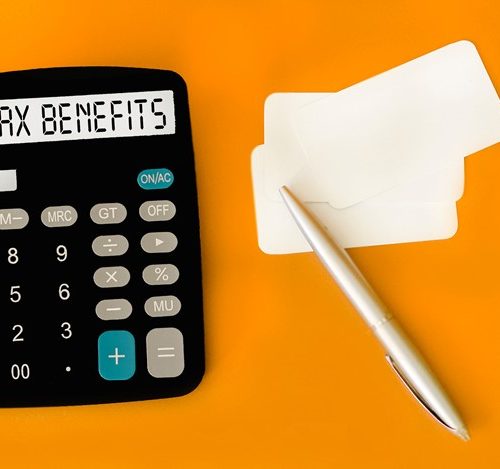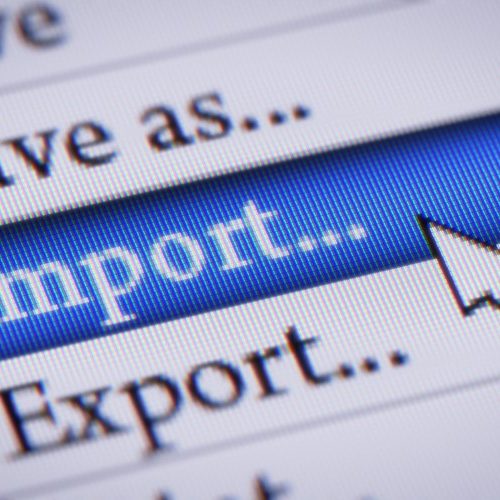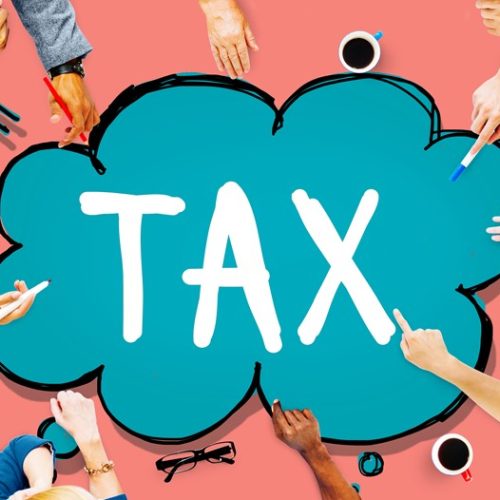

The new rules will allow companies to raise more capital under the following schemes although investors will need to factor in reduced VCT Income Tax relief when assessing opportunities.
The Venture Capital Trusts (VCT) and Enterprise Investment Scheme (EIS) are designed to encourage private investment into trading companies. Both schemes help support business growth while at the same time encouraging individuals to fund these companies.
A number of changes to the schemes were announced at Budget 2025 and will apply from 6 April 2026.
The main changes are as follows:
These increases in annual, lifetime and gross assets apply only to qualifying companies that are not registered in Northern Ireland and are not engaged in trading goods, or in the generation, transmission, distribution, supply, wholesale trade, or cross-border exchange of electricity. These companies remain eligible under the current scheme limits.
These changes are designed to encourage larger investments into qualifying companies. Investors should be aware of the reduced VCT Income Tax relief available and ensure that investments still remain worthwhile.

While there are many state benefits available, it is not always clear which of these are taxable and which are tax-free.
HMRC’s guidance outlines the following list of the most common state benefits which are taxable, subject to the usual limits:
The most common state benefits that usually tax-free include the following:

If your business imports goods into the UK, it is important to be familiar with the Customs Declaration Service and to ensure that any duty payments are made correctly and on time to avoid delays, interest or penalties.
The Customs Declaration Service (CDS) is a specially designed IT platform used for completing customs declarations for businesses that import or export goods from the UK. All electronic import declarations must be submitted through the CDS.
When you import goods into the UK using the CDS, you must pay any tax due promptly. Payments should reach HMRC by the deadline, and if that falls on a weekend or bank holiday then the payment must arrive by the previous working day.
Late payments may result in interest charges and / or penalties. You will need your unique 16-character reference number starting with “CDSI,” which is specific to each declaration, to make a payment. Using the wrong number can delay the release of your goods.
Payment can be made online through your bank account or with a debit or corporate credit card (personal credit cards are not accepted). Online bank payments are usually instant but may take up to two hours to appear, while card payments are recorded on the date made.
Payments can also be made by bank transfer. CHAPS or Faster Payments usually arrive the same or next day, while BACS take about three working days. UK payments should go to HMRC’s Customs Duty Schemes account (sort code 08 32 10, account number 14077970). Overseas payments must be made in GBP. There are also options to pay by cheque, allowing three working days for delivery. If there are payment issues or further advice is required, you can contact HMRC’s National Clearance Hub.

The tax legislation requires the deduction of tax from yearly interest that arises in the UK. This typically refers to interest that is subject to Income Tax or Corporation Tax.
The legislation requires the deduction of tax from yearly interest, if:
The tax must be deducted by the person or entity making the payment at the savings rate in force for the tax year in which the payment is made. In practice, the main circumstances where tax is deducted are where a company makes a payment of interest to an individual or other non-corporate person, or where interest is paid by a person (individual, trustee or corporate) to another person whose usual place of abode is outside the UK.
However, some exclusions apply. For example, interest paid by deposit takers, interest paid to a bank or building society, interest paid from UK public revenues or under the former Mortgage Interest Relief At Source (MIRAS) scheme. Companies, local authorities and ‘qualifying firms’ (a firm which includes a company or local authority as a partner) are also exempt from the requirement to deduct tax from interest paid to certain recipients.
It is important to note that statutory interest under the Late Payment of Commercial Debts (Interest) Act 1998, is not classified as yearly interest and does not fall under these rules.

The remittance basis of taxation for non-UK domiciled individuals (non-doms) was replaced with the new Foreign Income and Gains (FIG) regime from April 2025. This new regime is based on tax residence rather than domicile. Under the new rules, nearly all UK-resident individuals must report their foreign income and gains to HMRC, regardless of whether they had previously claimed remittance basis or are claiming relief under the FIG regime.
Former remittance basis users not eligible for the new FIG relief are now taxed on newly arising foreign income and gains in the same way as other UK residents. However, they will still be taxed on any pre-6 April 2025 FIG that is remitted to the UK.
A key feature of the new regime is the 4-year FIG relief. This is available to new UK residents who have not been UK tax resident in any of the 10 preceding tax years. These individuals can opt in to receive full tax relief on their FIG for up to four years. Claims must be made via a self-assessment return, with deadlines falling on 31 January in the second tax year after the relevant claim year. The FUG relief lasts for a maximum of 4 consecutive years starting from when a person first became a UK tax resident. Claims can be made selectively in any of the four years, but any unused years cannot be rolled over.
The types of foreign income which are eligible for relief includes:
An individual’s ability to qualify for the 4-year FIG regime will be determined by whether they are UK resident under the Statutory Residence Test (SRT).

The Enterprise Investment Scheme (EIS) is designed to help smaller, higher-risk trading companies raise finance by offering a range of tax reliefs to investors who purchase new shares in those companies.
This scheme aims to encourage investment in early-stage businesses by providing substantial tax benefits to investors. However, in order to claim EIS tax reliefs, the issuing company must meet a set of strict criteria regarding its size, the amount of money it can raise, and the purpose and timing of the funds raised.
For individual investors, the tax benefits include 30% Income Tax relief on investments, with a maximum annual investment limit of £1 million, or £2 million if at least £1 million is invested in knowledge-intensive companies. The generous tax allowances are intended to offset the higher risk of investing in these smaller companies. It is important for investors to be cautious and only invest money they are prepared to lose, as these companies can be particularly volatile.
The tax advantages of the EIS go beyond just Income Tax relief. Investors can also benefit from Capital Gains Tax (CGT) deferral for the life of their investment and tax relief for any losses incurred on the shares. However, it’s worth noting that Income Tax relief is capped at an amount that reduces the investor’s Income Tax liability to nil for the year, meaning it can’t exceed the individual’s tax due. These tax benefits make the EIS an attractive option for those looking to support high-growth companies while taking advantage of potential tax savings.

Not all casual payments are tax-free; HMRC’s miscellaneous income rules may apply depending on the circumstances.
The special miscellaneous income rules sweep-up provisions that seek to charge tax on certain income. This unusual provision, which is broad in scope, catches income that would not otherwise be charged under specific provisions to Income Tax or Corporation Tax.
A casual payment may be considered taxable miscellaneous income when it is received as a reward for a service that was performed under some form of agreement, arrangement, or common understanding that payment would be made.
This is different from a genuine gift or token of appreciation given voluntarily after a service, where there was no agreement, arrangement or common expectation for such a reward. These gifts are not taxable under the same provisions.
The distinction can be difficult to define. For example, in Brocklesby v Merricks (1934), the court highlighted the importance of an arrangement or entitlement to a share of earnings to make a receipt taxable. As a result, it is essential to review the specific circumstances of each case to determine whether a payment qualifies as taxable income or a non-taxable gift.

If your business operates in a sector covered by the Money Laundering Regulations, you must be monitored by a supervisory authority to ensure compliance. This article outlines who needs to register with HMRC for anti-money laundering (AML) supervision.
Your business must be registered with a supervisory authority if it operates in a sector covered by the Money Laundering Regulations. Some businesses are already supervised through authorisation by bodies like the Financial Conduct Authority (FCA) or professional associations such as the Law Society.
If your business is not already supervised and falls under one of the regulated sectors, you must register with HMRC.
Business Sectors Supervised by HMRC
HMRC is responsible for supervising businesses in the following sectors (where not already regulated by the FCA or a professional body):
If your business conducts these activities by way of business and is not already supervised, you must register with HMRC.
Money Service Businesses and Trust or Company Service Providers are not allowed to trade until their AML registration with HMRC is confirmed. Other businesses may continue operating while their registration is being processed.
Trading while not registered is a criminal offence and may result in a penalty or prosecution.

Bereaved spouses who lost service pensions before 2015 have until 15 October 2025 to claim a one-off £87,500 recognition payment.
This scheme was launched in October 2023 to help war widows and widowers who lost their service-attributable pensions due to remarriage or entering new relationships before 2015. Since the scheme was launched, over £21 million has been paid out to more than 240 eligible individuals who had previously received no financial recognition for their sacrifice.
The scheme provides a one-off, tax-free payment of £87,500 to those who forfeited their service-attributable pensions prior to 2015 due to remarriage or cohabitation under the old pension rules and were in receipt of no other payments to recognise the loss of their partner.
The scheme applies to widow(er)s, including civil partners and unmarried cohabiting partners, of regular and reservist members of the Army, Navy or Royal Air Force.
The Minister for Veterans said,
‘The War Widows Recognition Payment Scheme has provided vital redress to those who have sacrificed so much for our country. With the scheme closing on 15 October, I urge anyone who believes they may be eligible to apply.’
Applications have slowed recently, but the Ministry of Defence believes there may still be eligible individuals who have not yet applied, and no extensions are planned.
Full details, eligibility criteria, and application forms are available at War Widow(er)s Recognition Payment – GOV.UK

Not sure if a business cost is deductible? HMRC’s ‘wholly and exclusively’ rule is the key test.
When deciding whether an expense is deductible or not it is important to bear in mind that the expenditure must be incurred wholly and exclusively for the purposes of your trade or employment. This is a difficult starting point as there is often a fine line to thread between deciding whether an expense meets this ‘wholly and exclusively’ rule.
In general, HMRC takes a slightly more relaxed view that a strict reading of the legislation would suggest. HMRC’s own internal manuals offers advice to HMRC inspectors to exercise care when applying the ‘wholly and exclusively’ test. The advice states that where there is an incidental benefit that does not, of itself, mean that the expenditure is disallowed.
The following example helps clarify this point. A self-employed consulting engineer may travel to exotic locations to advise on projects. The travel and the exotic locations may be benefits but where there was no private purpose they are incidental to the carrying on of the profession and the cost is allowable.
It is also possible to apportion part of an expense where necessary. For example, when considering the running costs of a car used partly for the purposes of the trade and partly for other purposes. HMRC’s position is that the costs associated with the business use of the car would be deductible.